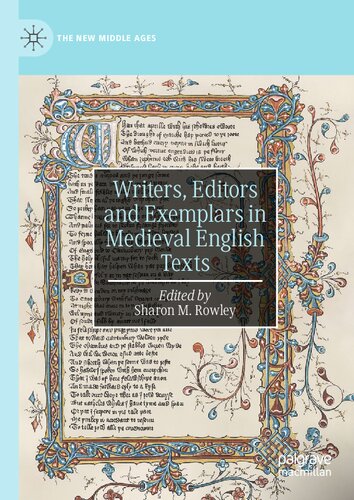

Most ebook files are in PDF format, so you can easily read them using various software such as Foxit Reader or directly on the Google Chrome browser.
Some ebook files are released by publishers in other formats such as .awz, .mobi, .epub, .fb2, etc. You may need to install specific software to read these formats on mobile/PC, such as Calibre.
Please read the tutorial at this link: https://ebookbell.com/faq
We offer FREE conversion to the popular formats you request; however, this may take some time. Therefore, right after payment, please email us, and we will try to provide the service as quickly as possible.
For some exceptional file formats or broken links (if any), please refrain from opening any disputes. Instead, email us first, and we will try to assist within a maximum of 6 hours.
EbookBell Team

4.4
62 reviewsThis collection of essays explores the literary legacy of medieval England by examining the writers, editors and exemplars of medieval English texts. In order to better understand the human agency, creativity and forms of sanctity of medieval England, these essays investigate both the production of medieval texts and the people whose hands and minds created, altered and/or published them. The chapters consider the writings of major authors such as Chaucer, Gower and Wyclif in relation to texts, authors and ideals less well-known today, and in light of the translation and interpretive reproduction of the Bible in Middle English. The essays make some texts available for the first time in print, and examine the roles of historical scholars in the construction of medieval English literature and textual cultures. By doing so, this collection investigates what it means to recover, study and represent some of the key medieval English texts that continue to influence us today.